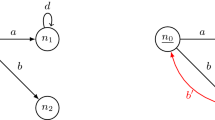Abstract
Though impressive advances have been made in the precision and scalabilty of alias analyses over the last 20 years, their applicability to real-world object-oriented programs has actually decreased. The growth in size of standard libraries and application frameworks has far exceeded scalability improvements in alias analysis—even analyzing a ”Hello world” program in Java has become non-trivial due to enormous standard libraries. Precision gains from greater flow and context sensitivity have been countered by greater usage of reflective constructs in programs, leading analyses to either unsoundly ignore reflection or compute very coarse results. Similar complications are emerging for large JavaScript applications, and the lack of static types in such programs can make computing even a basic call graph difficult [7]. Given these trends, it seems unlikely that further incremental improvements to traditional alias analysis algorithms will be sufficient to address the challenges of analyzing current and future real-world codes.
Access this chapter
Tax calculation will be finalised at checkout
Purchases are for personal use only
Similar content being viewed by others
References
Beckman, N.E., Nori, A.V., Rajamani, S.K., Simmons, R.J., Tetali, S.D., Thakur, A.V.: Proofs from tests. In: IEEE Transactions on Software Engineering (2010)
Dillig, I., Dillig, T., Aiken, A.: Automated error diagnosis using abductive inference. In: Proceedings of the 33rd ACM SIGPLAN Conference on Programming Language Design and Implementation, PLDI 2012, pp. 181–192. ACM, New York (2012)
Fink, S.J., Yahav, E., Dor, N., Ramalingam, G., Geay, E.: Effective typestate verification in the presence of aliasing. ACM Transactions on Software Engineering and Methodology 17(2), 1–34 (2008)
Guyer, S.Z., Lin, C.: Client-Driven Pointer Analysis. In: Cousot, R. (ed.) SAS 2003. LNCS, vol. 2694, pp. 214–236. Springer, Heidelberg (2003)
Sridharan, M., Artzi, S., Pistoia, M., Guarnieri, S., Tripp, O., Berg, R.: F4F: Taint analysis of framework-based web applications. In: Proceedings of the 2011 ACM International Conference on Object Oriented Programming Systems Languages and Applications, OOPSLA 2011, pp. 1053–1068. ACM, New York (2011)
Sridharan, M., Bodík, R.: Refinement-based context-sensitive points-to analysis for Java. In: Conference on Programming Language Design and Implementation, PLDI (2006)
Sridharan, M., Dolby, J., Chandra, S., Schäfer, M., Tip, F.: Correlation Tracking for Points-To Analysis of JavaScript. In: Noble, J. (ed.) ECOOP 2012. LNCS, vol. 7313, pp. 435–458. Springer, Heidelberg (2012)
Author information
Authors and Affiliations
Editor information
Editors and Affiliations
Rights and permissions
Copyright information
© 2013 Springer-Verlag Berlin Heidelberg
About this chapter
Cite this chapter
Sridharan, M. (2013). Alias Analysis: Beyond the Code. In: Clarke, D., Noble, J., Wrigstad, T. (eds) Aliasing in Object-Oriented Programming. Types, Analysis and Verification. Lecture Notes in Computer Science, vol 7850. Springer, Berlin, Heidelberg. https://doi.org/10.1007/978-3-642-36946-9_19
Download citation
DOI: https://doi.org/10.1007/978-3-642-36946-9_19
Publisher Name: Springer, Berlin, Heidelberg
Print ISBN: 978-3-642-36945-2
Online ISBN: 978-3-642-36946-9
eBook Packages: Computer ScienceComputer Science (R0)




